Jeff Rose Makes Self-Worth Bloom
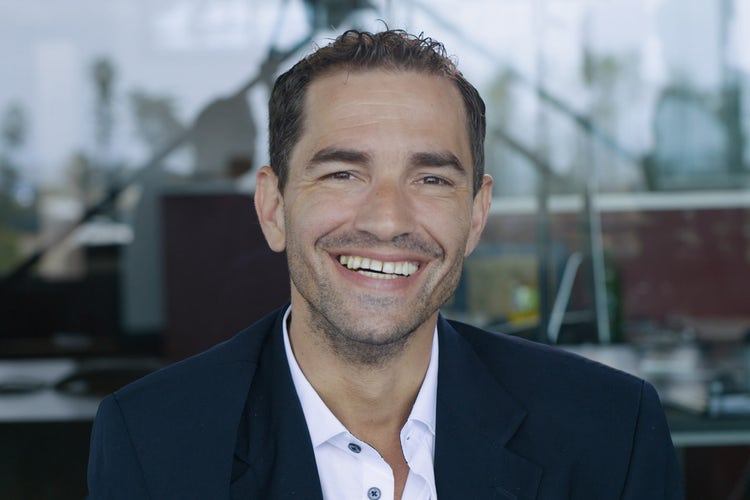
Jeff Rose is an avid adaptive surfer and skier. But his daily workout is not aimed at performance. “When I elevate my heart rate, it reminds me I’m in charge of my body,” Rose says.
When Rose was 18, he was diagnosed with Friedreich’s ataxia, a rare genetic disorder in the same family as muscular dystrophy. The first sign was difficulty walking, and the news was even more devastating because Rose witnessed his aunt’s experience living with the condition.
Despite their shared diagnosis, Rose has taken a different path: “I love my aunt, but we have different attitudes and different perspectives,” he says. Rose’s sister also lives with an advanced stage of the condition.
“My brain and body are fine, but the neuro-communication between the two gets jumbled,” Rose explains. Speaking with him, it suddenly becomes clear that we’re just hearing Rose through a filter.
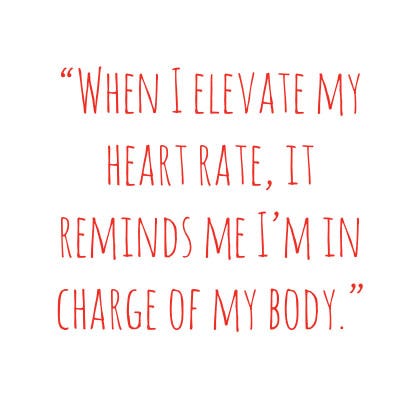
“You are 100 percent responsible”
Not surprisingly, the 18-year-old Rose became deeply depressed and, at times, suicidal. “I dropped out of college. I started using drugs,” he says.
Then, when he was 21 and sitting in a doctor’s waiting room, he happened to pick up a magazine and read an article about people living with equally devastating conditions who had had a paradigm shift. “And the paradigm was how their success was 100 percent up to them,” he says. “You are 100 percent responsible for your own life, meaning you can’t blame anything or anyone.”
Their responses to their conditions “went from reactive to proactive,” Rose continues. He saw how their lives began to change as a result. He began to read personal development books and worked to change his focus from blaming his grandparents for the hereditary disease to focusing on what he can do.
Eventually, he concluded that we’re spirits living in bodies. Rose says he goes to 24 Hour Fitness to work out “not to try to get healed but because I believe I am complete, and that’s just what athletes do is work out every day.”
It was a journey to arrive at his new perspective. “ It took two years of conditioning from ‘I can’t’ to ‘I can,’ and all of the sudden, it empowered me to do whatever was in my heart before the diagnosis” Rose says. “So I re-enrolled in school and got two more [Bachelor of Arts].”
That was when Rose began speaking about his condition and his changed perspective at the college he was attending.
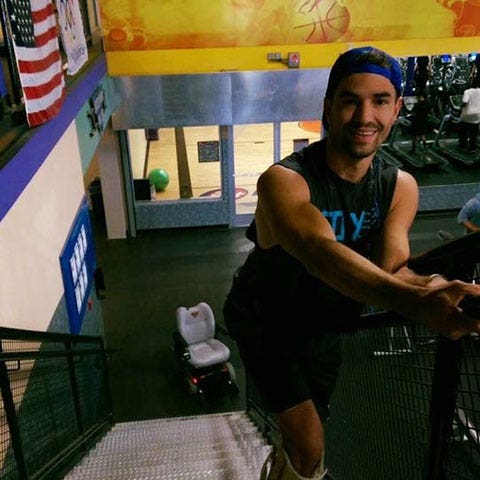
“Success is not based on any condition”
Today, advocacy is a full-time business for Rose. Able and differently abled bodies alike need to understand, Rose says, that “success is not based on any condition. Success is based on decisions in the condition. When you understand that, you don’t have to let circumstances dictate who you are.”
Rose is working to change the way disabled people are represented in the media. He recently was featured in a series called “Changing the Face of Beauty.” He cites how representation of seniors was changed by a television show called “The Golden Girls,” and representation of disability needs to undergo a similar transformation.
“For someone like me to get better and heal,” Rose says, “I’ve got to feel comfortable in my own skin. And the only way I can do that is by getting more exposure and just getting out” to counter the social reflection that keeps people with disabilities feeling inhibited.
That’s where his surfing adventures come in, as Rose works to help people with disabilities understand, “There may be an issue with your body, but there’s nothing wrong with you.” Rose envisions an amusement park with wheelchair-friendly rides and entertainment that allows people a reprieve from the hard work of “trying to feel a little bit better than yesterday,” where they can relax and enjoy themselves. He’s especially partial to roller coasters and waterslides.
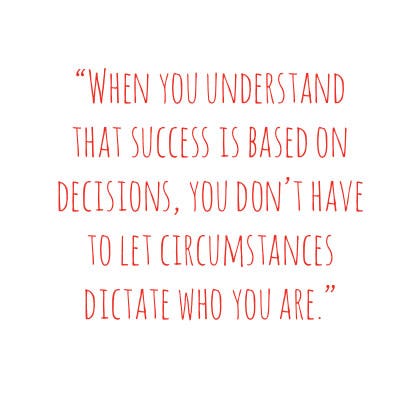
“Making other people feel worthy”
Public speaking and activities are good for Rose, too: “I believe the more I am able to speak about it, the deeper it goes down into my subconscious,” he says. His daily routine includes working out—for himself and to set an example for others. “Working out is when I realize to the highest point that I’m not [just] my body. I’m in charge and all this feels so wonderful,” he adds. “I’m making other people feel worthy when I go to the gym.”
Rose isn’t talking about a subset of the gym community. He even puts anyone at ease who’s experienced a wardrobe malfunction at the gym with his own experience. Rose wears leg braces to use the treadmill, and his particularly loose pair of gym pants fell. Rose says he must hold on “for dear life” to the treadmill anyway, which meant he was helpless to do anything about the pants until an employee ran over to help.
“Right then and there, I was faced with a choice to respond with ‘I’m a loser, I’m an idiot,’ or ‘I’m a champion,’” Rose says. “So I decided to stay there and get five more minutes on the treadmill. … I decided you know what? Life happens.”

The law of attraction
Rose brings a certain grace to these interactions. When people offer to help at the gym, he could refuse the assistance, but he says, “They want to make sure I’m all right. You know what? That is what life’s about, and people don’t know how easy and wonderful life can be if they just try.”
He concludes, “People love to see you trying. Some people call it law of attraction. You attract whatever you are. You attract that to yourself.” So it’s no surprise that Rose met his wife at the gym, and they got married in January 2019.
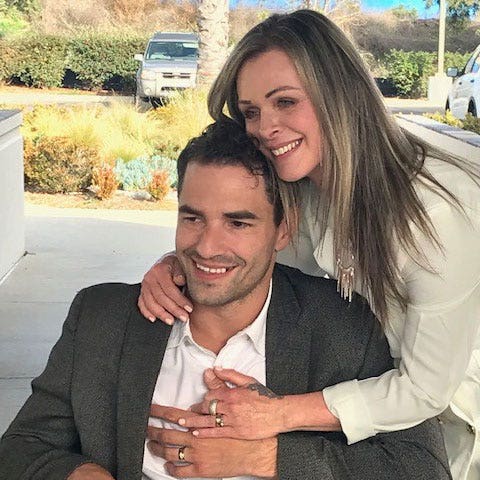
Photo credit: Matt Weddle, Enjet Media; Jeff Rose